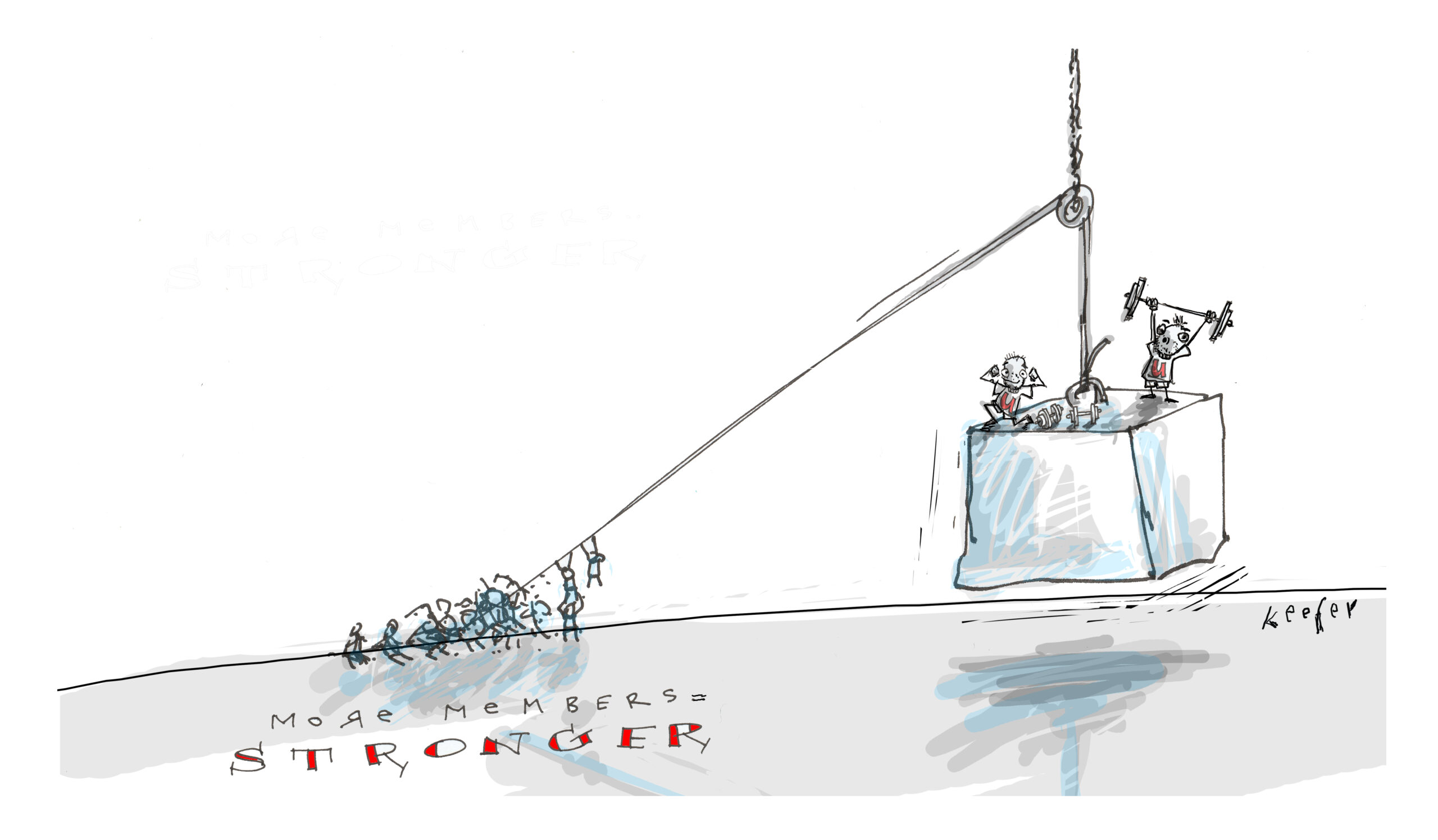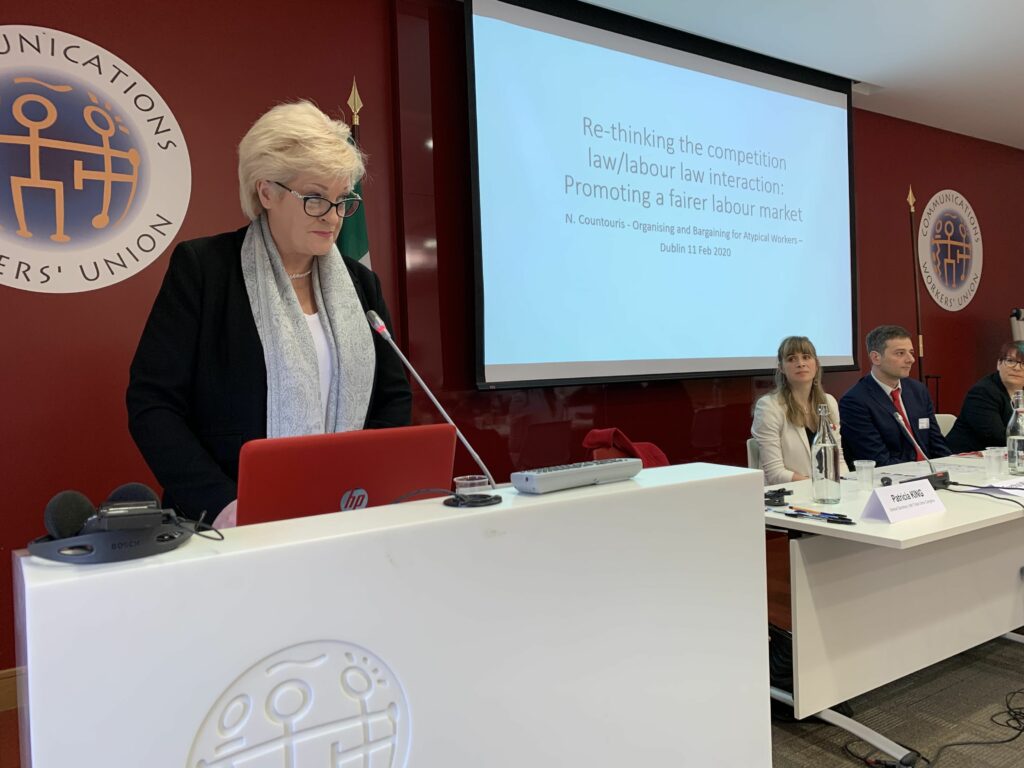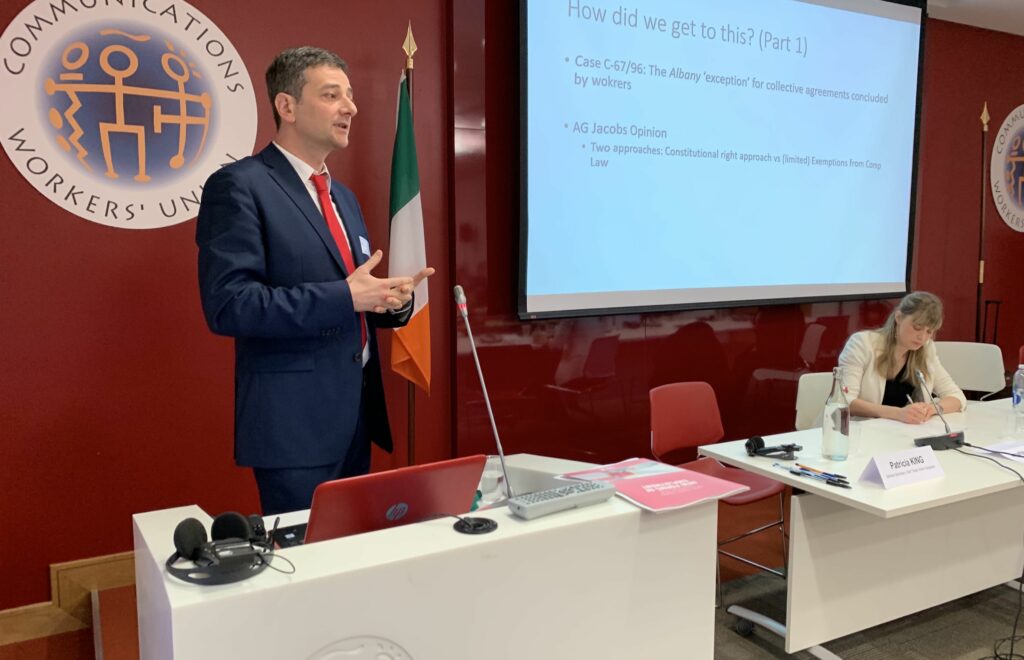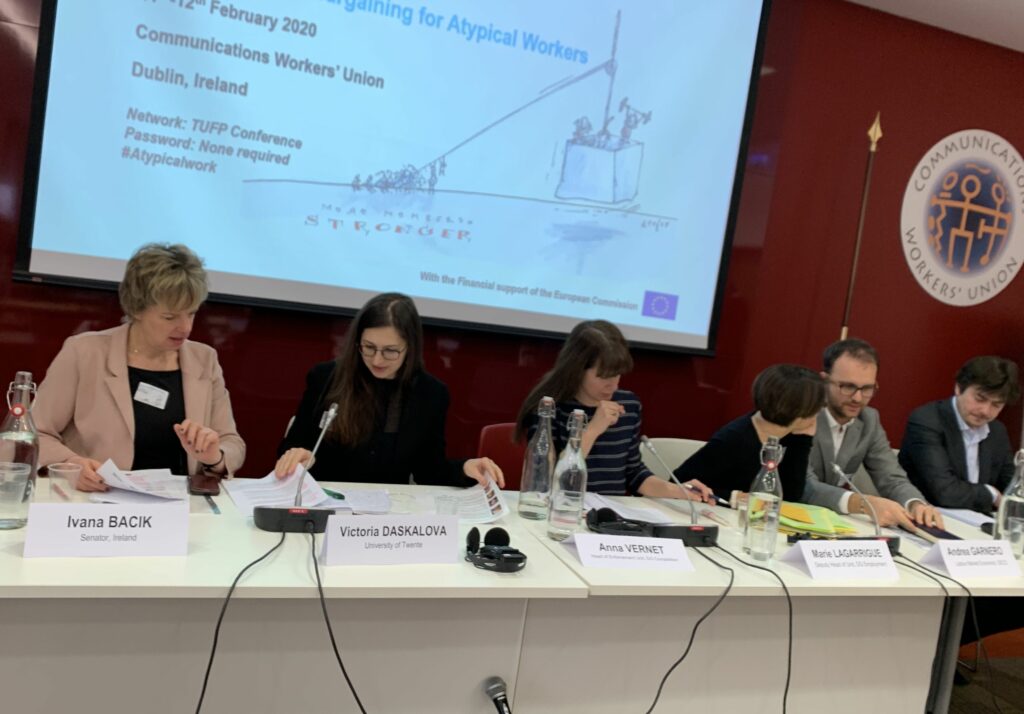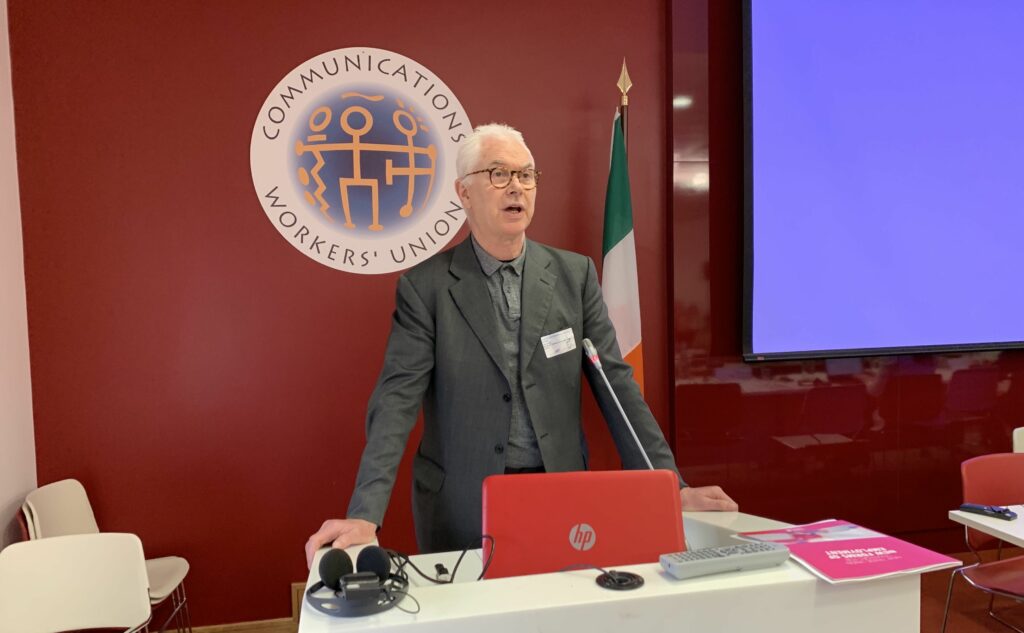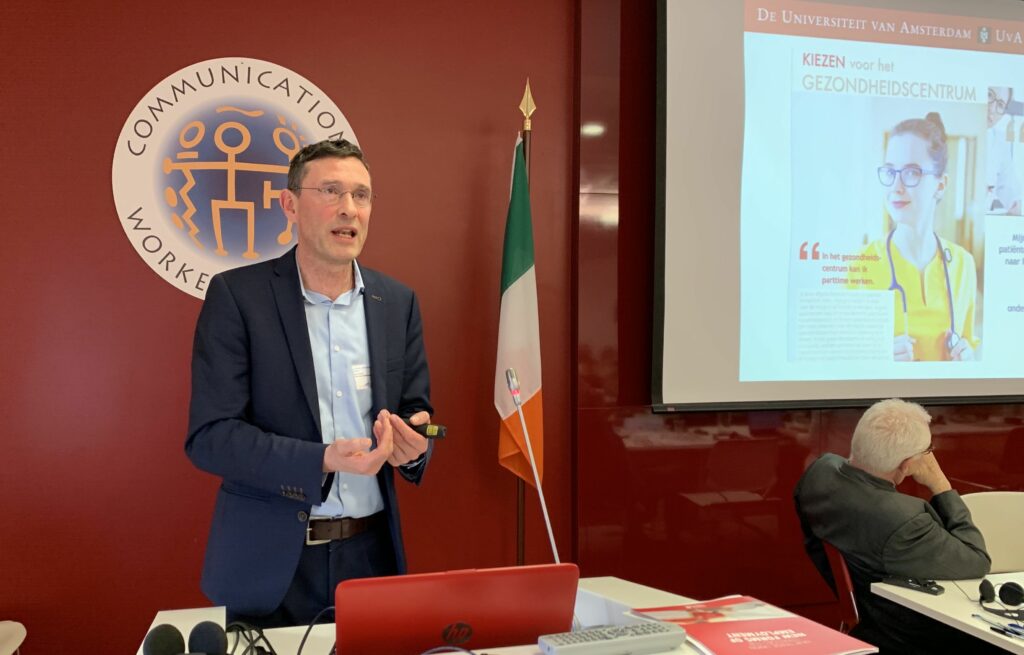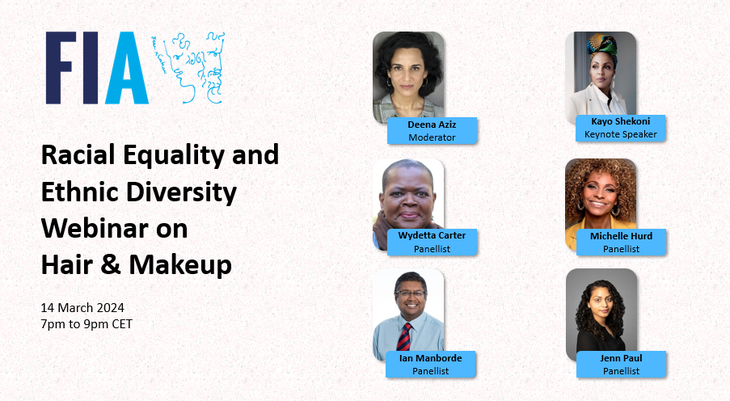This conference, hosted by Irish Equity & SIPTU in Dublin, took place in mid-February of this year in the charming and historical venue of the Communications’ Workers Union in the city centre. The more than 100 delegates present had no premonition that this would be the last gathering bringing together the members of FIA and our sister unions FIM, UNI MEI and EFJ for quite some time to come. Indeed, the only cloud on the horizon at that moment seemed to be Storm Ciara, which raged across Ireland and the UK in the days immediately preceding the event and made travel to Dublin difficult. There was little inkling of the imminent arrival of the far greater storm of Covid 19, soon to devastate the sector and indeed the world. Yet the focus on organising and representing the vulnerable freelance workforce was a timely one. Despite the tempestuous weather, there was an excellent turn-out and a very positive energy in the room for this event, which brought to a close the European project “Reaching the Full Potential of Social Dialogue for All Workers”. This project, which started in early 2018, was financed by the European Commission under its Information and Training Measures for Workers’ Organisations social dialogue budget line. This closing event aimed to offer a full restitution of the work done, and the many excellent resources gathered and developed, in the course of the project, as well as to be a forum for discussion about the next steps in this work, which the federations are keen to continue.
The conference was honoured to welcome Patricia King, General Secretary of ICTU to open the day and in her memorable keynote address, she recalled the long campaign in Ireland to restore collective bargaining to freelance voice-over actors, musicians and journalists, culminating in the Competition Amendment Act of 2017. She urged the trade unions present to take seriously the need for organising and recalled the vital role of collective bargaining, but invited them to face it together in a positive way, saying: “there can be no doubt this is the largest challenge facing our movement across our continent. There is no room for despondency.”
The morning session also included a keynote address from legal expert Professor Nicolas Countouris of UCL, whose highly informative address took delegates through every aspect of the deliberations of the legal expert group in the project. He detailed the theoretical approach to the personal labour relationship and the particular resonance it has for workers in the Media, Arts and Entertainment sector. Two lively panel discussions followed. The first examined the issue of collective bargaining for self-employed freelancers and was co-moderated by Assistant Professor Victoria Daskalova from Twente University, specialised in competition law, and by Senator Ivana Bacik of Ireland, the policy-maker who moved the 2017 Competition Amendment Act in Ireland. The hurdles and challenges, as well as the opportunities, were debated by the panellists Anna Vernet, Head of Enforcement Unit, DG Competition; Andrea Garnero, Labour Market Economist, OECD; Marie Lagarrigue, Deputy Head of Unit, DG Employment; and Xavier Beaudonnet, International Labour Standards Department, ILO.
Two further keynote speakers followed. Lord John Hendy, QC took the delegates through the vital argumentation made in the ICTU Vs Ireland complaint submitted to the Committee of Social Rights and the Council of Europe and the valuable clarifications that emerged in their judgement at the end of 2018. Professor Evert Verhulp of the University of Amsterdam presented delegates with the experience and current approach to collective bargaining for freelance workers in the Netherlands, in the wake of the FNV KIEM decision and a new awareness of the need for improved labour conditions in the creative and cultural sector to ensure its sustainability and high standards of excellence.
The second panel of the day took a closer look at classification of sectoral workers from a fiscal and social security point of view and how this is evolving. Entitled “Freelancers: the challenge of fairly regulating self-employed workers in the Media Arts and Entertainment sector: the Irish, Dutch and EU perspectives” and chaired by Professor Martin Risak of the University of Vienna and by Karan O’Loughlin of SIPTU, Ireland, this panel gave the floor to high level policy makers from Ireland and the Netherlands and completed the discussion with a more general European outlook provided by the European Trade Union Confederation. The speakers were Katie Schreiber, Dutch Ministry of Education, Culture and Science; Tom Kiely, The Office of the Revenue Commissioners, Ireland; Mary Nash, Department of Arts, Culture and the Gaeltacht; and Ludovic Voet, Confederal Secretary of the ETUC. This legal and policy focused section of the agenda was brought to a close with a final keynote address delivered by Joerg Tagger, Head of the Social Dialogue Unit. Mr Tagger noted that it was fine to see the outcomes of the funding which his unit oversees and drew the attention of delegates to the ambitious social programme of the new Commission and urged them to fully take up their role as social partners in implementing it.
The conference then shifted its focus to the second strand of the project, which was the union organising training delivered to the nine participating unions. The three project trainers Kate Elliott, Becky Wright and Tara O’Dowd each moderated a panel with their three unions. The trainers introduced their approach and methodology and offered their reflections on the experience. The unions talked about what it had meant for them to participate, how it impacted on the union’s work and the results that it had delivered. All talked about a renewed commitment to organising and a sense of the potential offered. Some unions had already put actions on train and even achieved a considerable uptick in membership. All felt the experience had been enriching and worthwhile, with most committed to continuing the work begun with the trainers. The diversity of feedback, photos and videos from the experiences gave delegates a strong sense of the experience and there was a lively debate with the room. This was further developed in breakout sessions with each of the trainers next day, offering the participating unions the space for further reflection and exchange on the organising challenge, in particular in relation to atypical workers. The training experience is also to be captured in the project publication ‘Handbook on Trade Union Organising in the Media, Arts and Entertainment Sector’. This will be published this spring in English, French, Spanish, Polish and German. It is in the final phase of preparation.
The final session of the day was an open exchange led by the secretariats of the four partner federations of the project. It explored what the next steps should be in this work and how to maintain the momentum in relation to the discussion on collective bargaining for freelance workers and how to continue to add value to the trade union organising efforts in this area. Many ideas were discussed and the meeting closed with a firm decision to continue the valuable joint working in this area.
